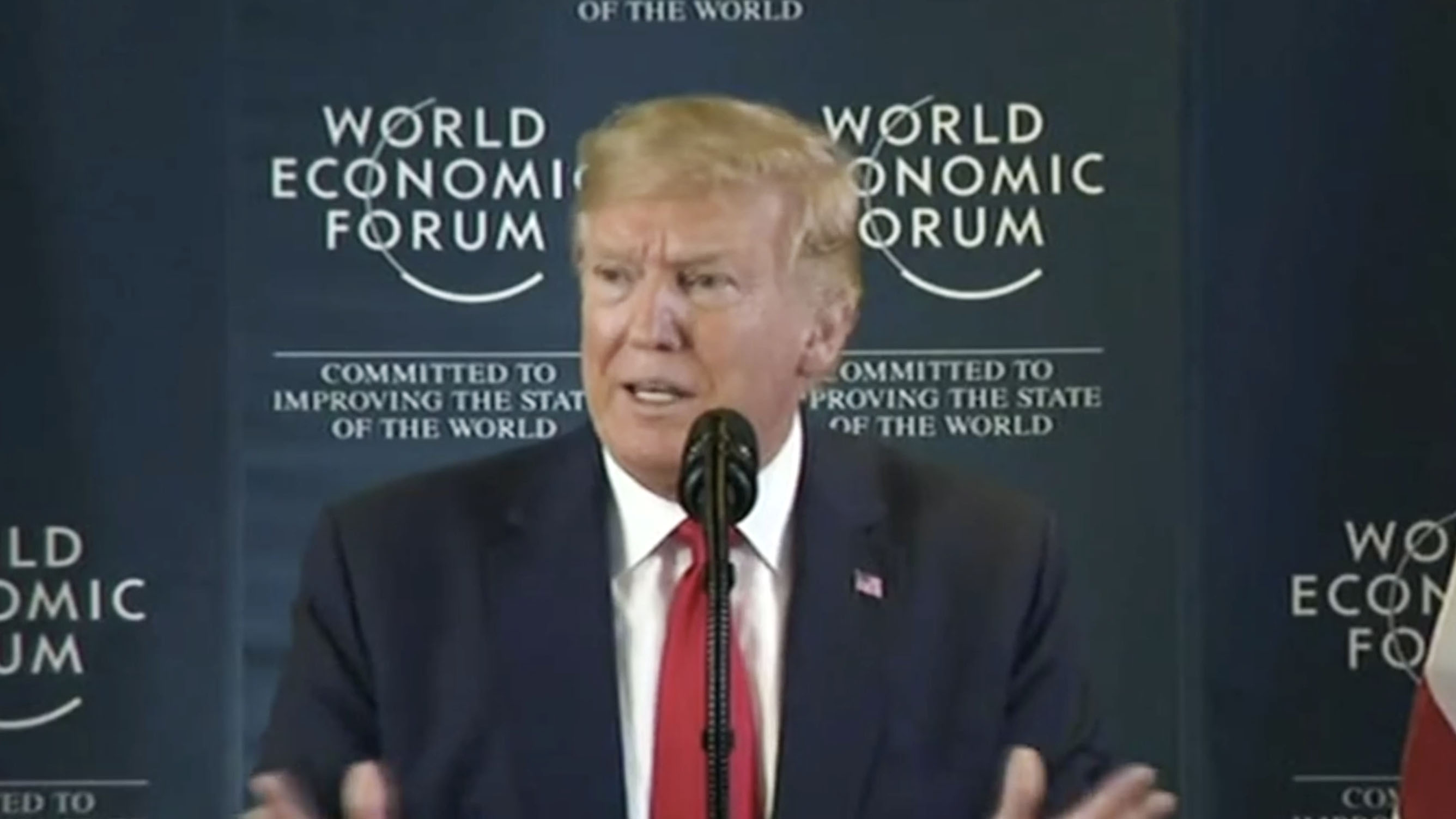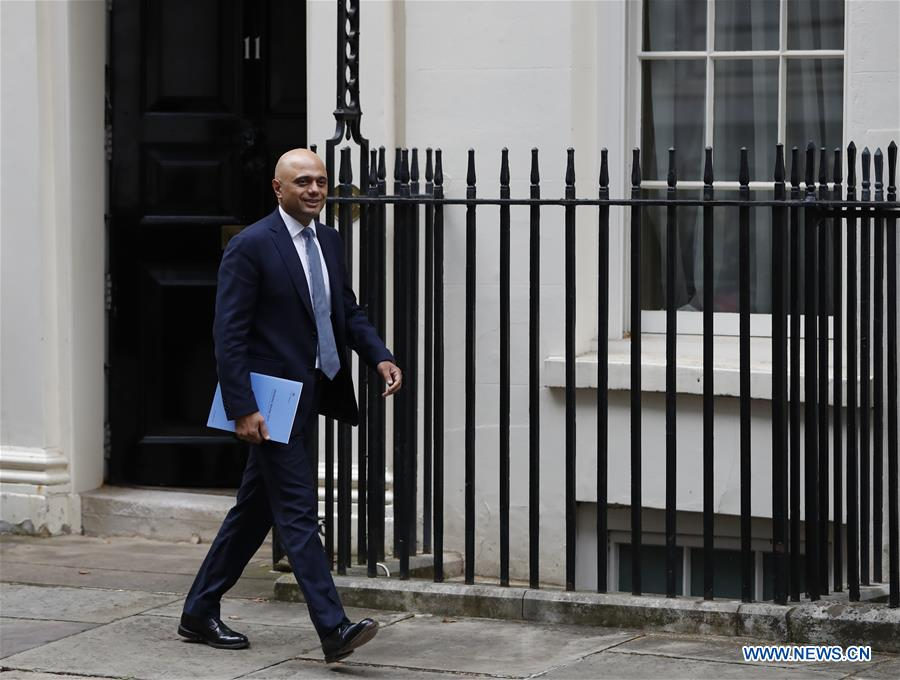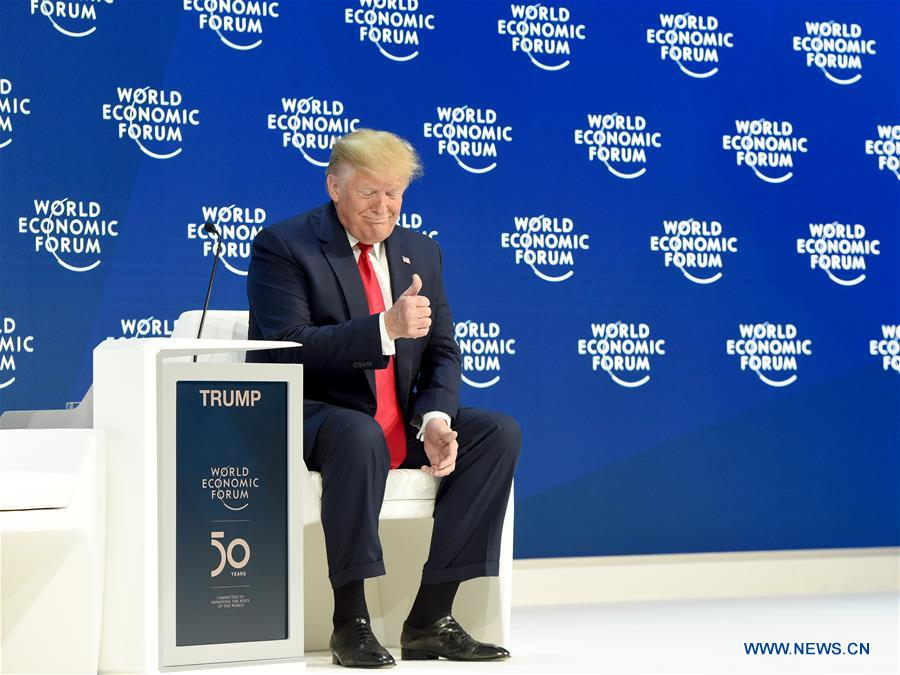While the world's business and political elites are gathering at the Swiss mountain resort of Davos primarily to discuss cooperation this week, the Trump administration talked tough to the European Union (EU) and the UK over trade at the World Economic Forum Annual Meeting.
U.S. and UK spar over taxing Big Tech
Finance chiefs from the U.S. and the UK on Wednesday sparred over a new British law to tax technology firms, the biggest of which are U.S.-based, during an event at Davos.
UK Chancellor Sajid Javid, speaking on a panel hosted by business news platform CNBC, said Britain plans to "go ahead" with a tax of 2 percent on the revenues of search engines, social media platforms and online marketplaces that profit from UK-based users to be implemented on April 1.
But his American counterpart, Treasury Secretary Steven Mnuchin, was clear about the U.S.'s opposition to the levy.
01:48

"We've been pretty clear that we think that the digital tax is discriminatory in nature," he said, also speaking on the panel.
"If people just want to arbitrarily put taxes on our digital companies, we'll consider arbitrarily putting taxes on car companies," he added.
Javid described the levy as "proportionate" and "deliberately designed as a temporary tax." Meanwhile, Mnuchin said that "private conversations" would take place between the U.S. and the UK over the issue.
The UK's upcoming law is not the first proposal of its kind in Europe. France backed off a similar Big Tech tax this week in exchange for the U.S. delaying tariffs on French imports worth up to $2.4 billion, including cheese, handbags and sparkling wine.
But despite the transatlantic disagreement over taxing technology companies, both U.S. President Donald Trump and Mnuchin have said at Davos that they are willing to work with the UK on a trade deal when it leaves the EU at the end of January.
Trump ready to tariff European car imports
Trump, speaking to U.S. media outlets at Davos, reiterated his threat to further tariff imports from the EU should a trade deal between the U.S. and the bloc not be reached.

Britain's Chancellor of the Exchequer Sajid Javid leaves 11 Downing Street in London, UK, September 4, 2019. /Xinhua Photo
Britain's Chancellor of the Exchequer Sajid Javid leaves 11 Downing Street in London, UK, September 4, 2019. /Xinhua Photo
Trump said he told Ursula von der Leyen, head of the European Commission, that he was "going to have to take action" in the event of a no deal on trade. "The action will be very high tariffs on their cars and on other things that come into our country," he added during an interview with CNBC on Wednesday. "They have no choice" but to strike a deal, he said.
"Ultimately, it will be very easy because if we can't make a deal, we'll have to put 25 percent tariffs on their cars," Trump told Fox Business Network separately.
But Germany's ambassador to the United States, Emily Haber, told an event hosted by the Center for Strategic and International Studies on Wednesday that the EU would respond "in the same dimension and the same vein."
Both sides have already imposed import tariffs on various goods.
Business as usual for the U.S.?
The Trump administration's blustering toward Europe and the UK at Davos is a reaction to its progress made with China over the phase one trade deal signed in Washington last week, one finance expert told CGTN.

U.S. President Donald Trump at the World Economic Forum Annual Meeting in Davos, Switzerland, January 21, 2020. /Xinhua Photo
U.S. President Donald Trump at the World Economic Forum Annual Meeting in Davos, Switzerland, January 21, 2020. /Xinhua Photo
"Trump's administration needs an enemy to bolster the nationalism that helps keep it in power. Now that there is a temporary trade truce between Washington and Beijing, Trump is challenging Europe over largely fallacious trade injustices," David Mahon, executive chairman of Beijing-based asset management firm Mahon China Investment Management, told CGTN.
"He needs Americans blaming others for domestic failures that are in fact Washington's fault," he added.
But for Ker Gibbs, president of the American Chamber of Commerce based in Shanghai, talk of trade tariffs at Davos was a case of business as usual for the Trump administration.
The U.S. President and Mnuchin's comments were "fairly consistent" with Trump's characteristic approach to trade policy, which begins with talking tough before attempting to strike a bilateral deal, he said.
The World Trade Organization reform was also broached at Davos, as Trump told reporters, "We're going to do something that I think will be very dramatic" after a meeting with the institution's Director General Roberto Azevedo on Wednesday, a precursor to further talks in Washington.
Approaching the EU by threatening levies was the "next in the series" for Trump after smoothing out the U.S.-China trade war, albeit temporarily, Gibbs explained.
"My sense is the president is taking a deliberate and determined approach with Europe, just as he did with China," he said.
(With input from Reuters)